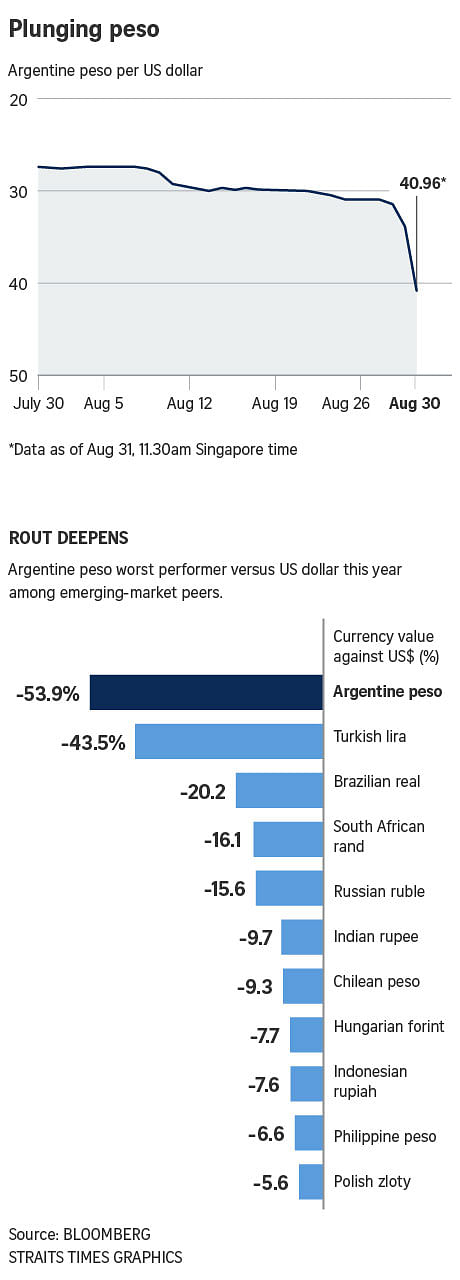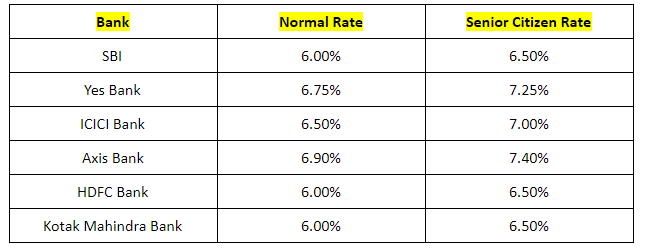Highest Rate Of Interest
Many state's laws provide that you cannot lend money at an interest rate in excess of a certain statutory maximum, which is called 'usury limit.'9 min read
1. Limits on Interest Rates for Loans
- Here are the best online savings account interest rates. If you are looking for a low-risk way to save money over a long period of time, high yield savings accounts may be a good option for you.
- Those below 60 years of age can earn the highest fixed deposit rates of up to 7.10% by investing online, whereas senior citizens can get assured returns of up to 7.35%, which is one of the highest FD interest rates.
5.54%: 1971 - 2021: Federal Reserve: In the United States, the authority to set interest rates is divided between.
2. Different Rates We've Listed
3. State by State Usury Limits
Updated August 14, 2020:
Limits on Interest Rates for Loans
Many state's laws provide that you cannot lend money at an interest rate in excess of a certain statutory maximum. This is a 'usury limit.'
Unless otherwise stated, rates are simple and are not based on compound interest. Furthermore, the usury limits listed below are based on present limits, meaning the ones applicable at the time that this research was completed. Many states have had lower limits in the past. Additionally, in most states, a late charge or other fee exacted from someone who owes another debt is also counted as interest.
It's also important to understand that banks have separate rules, which is why the rate you pay for your car loan or credit card may be higher than the rates listed below. In 1980, due to high inflation, the federal government passed a special law that allowed national banks to ignore state usury limits and pegged the rate of interest at a certain number of points above the federal reserve discount rate. In addition, specially chartered organizations like small loan companies and installment plan sellers, such as car financing companies, have their own rules.
Different Rates We've Listed
The stated general usury limit is the rate that can be charged by one person or corporation to another. In other words, if you lend your next-door neighbor $100.00, the rate stated is the limit. If you want to charge more than the listed rate, you would need a special license such as a banking or pawnbroking license. This also means that special kinds of loans, like those from pawnbrokers or small loan companies, are not stated.
For some states, we also listed a 'legal rate.' In these states, if you have a contractual obligation that provides simply for interest without a specific term, or 'interest at the highest legal rate,' then the 'legal rate' listed is what applies.
In other instances, we have stated a 'judgment rate,' which is the rate that final judgments bear. In states without a usury limit, there still may be a federally imposed limit. The reason for this is that astronomically high-interest rates indicate to the federal government that “loan sharking” is happening.
State by State Usury Limits
Usury is a very complicated legal area. Transactions that a person would not consider to be affected by usury, such as repurchase agreements, are often subject to these limits. A word of caution: Before trying to lend someone money or attempting to invest with a guaranteed return, consult an attorney to make sure that you don't run afoul of the usury laws.
In states that specify one limit for consumers and one limit for non-consumers, you cannot avoid the usury limit by creating a sham business deal. In a supplement that is now being prepared and will be available soon, we will review the penalties for usury in each state and point out special circumstances in each state.
A
- ALABAMA: The legal rate of interest is 6%; the general usury limit is 8%. The judgment rate is 12%.
- ALASKA: The legal rate of interest is 10.5%; the general usury limit is more than 5% above the Federal Reserve interest rate on the day the loan was made.
- ARIZONA: The legal rate of interest is 10%.
- ARKANSAS: The legal rate of interest is 6%; for non-consumers, the usury limit is 5% above the Federal Reserve's interest rate; for consumers, the general usury limit is 17%. Judgments bear interest at the rate of 10% per annum, or the lawful agreed-upon rate, whichever is greater.
C
- CALIFORNIA: The legal rate of interest is 10% for consumers; the general usury limit for non-consumers is more than 5% greater than the Federal Reserve Bank of San Francisco's rate.
- COLORADO: The legal rate of interest is 8%; the general usury limit is 45%. The maximum rate to consumers is 12% per annum.
- CONNECTICUT: The legal rate of interest is 8%; the general usury rate is 12%. In civil suits where interest is allowed, it is allowed at 10%.
D
- DELAWARE: The legal rate of interest is 5% over the Federal Reserve rate.
- DISTRICT OF COLUMBIA: The legal rate of interest is 6%; the general usury limit is in excess of 24%.
F
- FLORIDA: The legal rate of interest is 12%; the general usury limit is 18%. On loans above $500,000, the maximum rate is 25%.
G
- GEORGIA: The legal rate of interest is 7%. On loans below $ 3,000, the usury limit is 16%. On loans above $ 3,000, the limit appears to be 5% per month. As to loans below $250,000, the interest rate must be specified in simple interest and in writing.
H
- HAWAII: The legal rate of interest is 10%. The usury limit for consumer transactions is 12%.
I
- IDAHO: The legal rate of interest is 12%. Judgments bear interest at the rate of 5% above the U.S. Treasury securities rate.
- ILLINOIS: The legal rate of interest is 5%. The general usury limit is 9%. The judgment rate is 9%.
- INDIANA: The legal rate of interest is 10%. Presently there is no usury limit; however, legislation is pending to establish limits. The judgment rate is also 10%.
- IOWA: The legal rate of interest is 10%. In general, consumer transactions are governed at a maximum rate of 12%.
K
- KANSAS: The legal rate of interest is 10%; the general usury limit is 15%. Judgments bear interest at 4% above the federal discount rate. On consumer transactions, the maximum rate of interest for the first $1,000 is 18%, above $1,000 is 14.45%.
- KENTUCKY: The legal rate of interest is 8%; the general usury limit is more than 4% greater than the Federal Reserve rate or 19%, whichever is less. On loans above $15,000, there is no limit. Judgments bear interest at the rate of 12% compounded yearly, or at such rate as is set by the Court.

L
- LOUISIANA: The legal rate of interest is one point over the average prime rate, not to exceed 14% nor be less than 7%. Usury limit for individuals is 12%, and there is no limit for corporations. (As warned, you cannot evade the limit by forming a corporation when the loan is actually to an individual.)

M
- MAINE: The legal rate of interest is 6%. Judgments below $30,000 bear 15%; otherwise, they bear interest at the 52-week average discount rate for T-Bills, plus 4%.
- MARYLAND: The legal rate of interest is 6%; the general usury limit is 24%. There are many nuances and exceptions to this law. Judgments bear interest at the rate of 10%.
- MASSACHUSETTS: The legal rate of interest is 6%; the general usury rate is 20%. Judgments bear interest at either 12% or 18%, depending on whether the court finds that a defense was frivolous.

- MICHIGAN: The legal rate of interest is 5%; the general usury limit is 7%. Judgments bear interest at the rate of 1% above the five-year T-note rate.
- MINNESOTA: The legal rate of interest is 6%. The judgment rate is the 'secondary market yield' for one-year T-Bills. Usury limit is 8%.
- MISSISSIPPI: The legal rate of interest is 9%; the general usury limit is more than 10%, or more than 5% above the federal reserve rate. There is no usury limit on commercial loans above $5,000. The judgment rate is 9% or a rate legally agreed upon in the underlying obligation.
- MISSOURI: The legal and judgment rate of interest is 9%. Corporations do not have a usury defense. (Remember that a corporation set up for the purpose of loaning money to an individual will violate the usury laws.)
- MONTANA: The legal rate of interest is 10%; the general usury limit is above 6% greater than New York City banks' prime rate. Judgments bear interest at the rate of 10% per annum.
N
- NEBRASKA: The legal rate of interest is 6%; the general usury limit is 16%. Accounts bear interest at the rate of 12%. Judgments bear interest at the rate of 1% above a bond yield equivalent to T-bill auction price.
- NEVADA: The legal rate of interest is 12%; there is no usury limit.
- NEW HAMPSHIRE: The legal rate of interest is 10%; there is no general usury rate.
- NEW JERSEY: The legal rate of interest is 6%; the general usury limit is 30% for individuals and 50% for corporations. There are a number of exceptions to this law.
- NEW MEXICO: The legal rate of interest is 15%. Judgment rate is fixed by the Court.
- NEW YORK: The legal rate of interest is 9%; the general usury limit is 16%.
- NORTH CAROLINA: The legal interest rate and the general usury limit is 8%. However, there is a provision for a variable rate, which is 16% or the T-Bill rate for non-competitive T-Bills. Above $25,000, there is no express limit. However, the law providing for 8% is still on the books.
- NORTH DAKOTA: The legal rate of interest is 6%; the general usury limit is 5.5% above the six-month treasury bill interest rate. The judgment rate is the contract rate or 12%, whichever is less. A late payment charge of 1.75% per month may be charged to commercial accounts that are overdue, provided that the charge is revealed prior to the account being opened and that the terms were less than 30 days — that is, that the account terms were net 30 or less.
O
- OKLAHOMA: The legal rate of interest is 6%. Consumer loans may not exceed 10% unless the person is licensed to make consumer loans. Maximum rate on non-consumer loans is 45%. The judgment rate is the T-Bill rate plus 4%.
- OREGON: The legal rate is 9%, the judgment rate is 9% or the contract rate, if lawful, whichever is higher. The general usury rate for loans below $50,000 is 12% or 5% above the discount rate for commercial paper.
P
- PENNSYLVANIA: The legal rate of interest is 6%, and this is the general usury limit for loans below $50,000, except for: loans with a lien on non-residential real estate; loans to corporations; loans that have no collateral above $35,000. Judgments bear interest at the legal rate. It is criminal usury to charge more than 25%.
- PUERTO RICO: The legal rate of interest is 6%; all other rates are set by the Finance Board of Office of Commissioner of Financial Institutions. Judgments bear interest at the same rate as the underlying debt.
R
- RHODE ISLAND: The legal rate of interest and judgment rate is 12%. The general usury limit is 21% or the interest rate charged for T- Bills plus 9%.
S
- SOUTH CAROLINA: The legal rate of interest is 8.75%, and judgments bear interest at the rate of 14%. Subject to federal criminal laws against loan sharking, there is no general usury limit for non-consumer transactions. The South Carolina Consumer Protection Code provides regulations for maximum rates of interest for consumer transactions. Please consult with counsel for the latest rates.
- SOUTH DAKOTA: The legal rate of interest is 15%; judgments bear interest at the rate of 12%. There is no other usury limit. There are certain limitations on consumer loans below $5,000.00.
T
- TENNESSEE: The legal rate and judgment rate of interest is 10%. The general usury limit is 24%, or four points above the average prime loan rate, whichever is less.
- TEXAS: The legal rate of interest is 6%. Interest does not begin until 30 days after an account was due. The judgment rate of interest is 18% or the rate in the contract, whichever is less. There are a number of specific ceilings for different types of loans, so please see counsel for information.
U
- UTAH: The legal rate of interest is 10%. Judgments bear interest at the rate of 12% or a lawfully agreed upon rate. There are floating rates prescribed for consumer transactions. Please see counsel for information.
V
- VERMONT: The legal rate of interest and judgment rate of interest is 12%. On retail installment contracts, the maximum rate is 18% on the first $500, 15% above $500. The general usury limit is 12%.
- VIRGINIA: The legal rate of interest is 8%. Judgments bear interest at the rate of 8% or the lawful contract rate. Corporations and business loans do not have a usury limit, and loans over $5,000 for 'business' or 'investment' purposes are also exempt from usury laws. Consumer loans are regulated and have multiple rates.
W
Good Interest Rates
- WASHINGTON: The legal rate is 12%. The general usury limit is 12%, or four points above the average T-Bill rate for the past 26 weeks, whichever is greater. (The maximum rate is announced by the state treasurer.) Judgments bear interest at the rate of 12% or the lawful contract rate, whichever is higher.
- WEST VIRGINIA: The legal rate of interest is 6%. The maximum 'contractual' rate is 8%; Commissioner of Banking issues rates for real estate loans and may establish maximum general usury limit based on market rates.
- WISCONSIN: The legal rate of interest is 5%. There are myriad rates for different types of loans. There is no general usury limit for corporations. Note that a loan to an individual, even if a corporation is formed, will violate the law. The judgment rate of interest is 12%, except for mortgage foreclosures, where the rate will be the lawful contract rate.
Highest Rate Of Interest
- WYOMING: The legal rate and judgment rate of interest is 10%. If a contract provides for a lesser rate, the judgment rate is the lesser of 10% and the contract rate.
If you need more help understanding state interest rates or usury limits, post your job on UpCounsel's marketplace. UpCounsel accepts only the top 5 percent of lawyers to its site. Lawyers on UpCounsel come from law schools like Harvard Law and Yale Law and average 14 years of legal experience, including work with or on behalf of companies like Google, Menlo Ventures, and Airbnb.